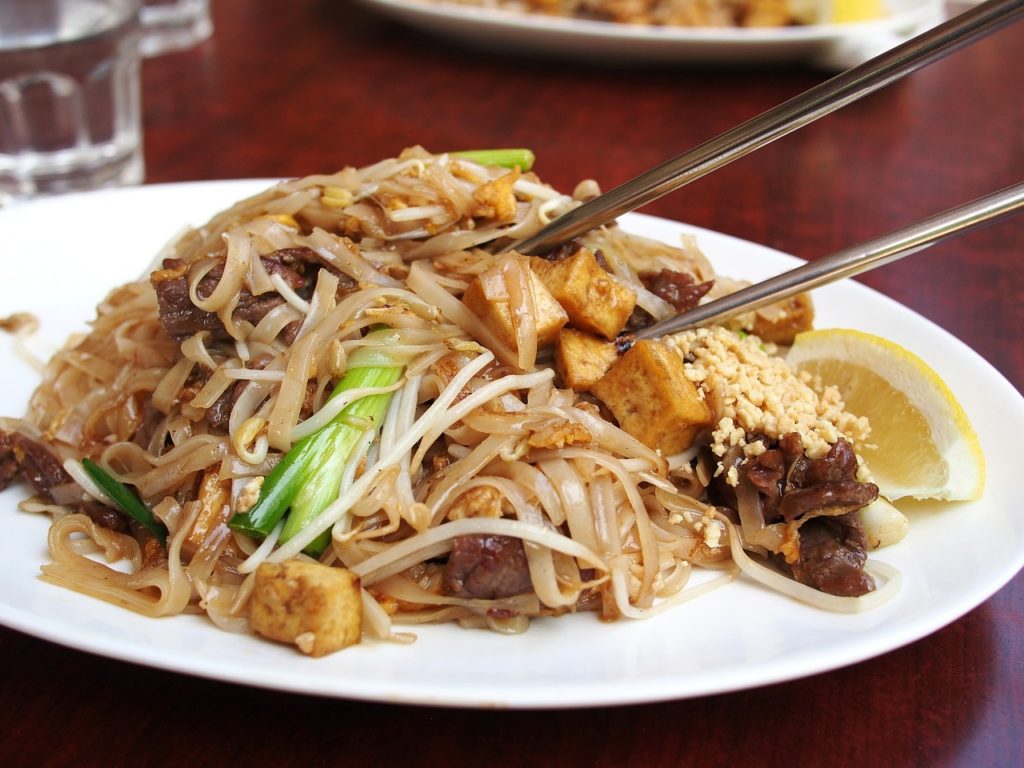On the morning of May 15, the Conference on Dialogue of Asian Civilizations(CDAC) commenced at Chinese capital Beijing. As a complementary program of the Conference on Dialogue of Asian Civilizations, the Chengdu Panda Asian Food Festival(CPAFF) also kicked off on the same day, according to the Organizing Committee of the Chengdu Panda Asian Food Festival (CPAFF).
In a dialogue of civilizations, a dish is worth a thousand words. Chengdu, this home to 16 million people and central city in western China, is undertaking a campaign surrounding the core theme “great food, search for fragrance, showcase our respective beauty and admire each other’s beauty” and comprised of 45 activities such as culinary cultural summit, “journey for the search of fragrance” art of living experience tour, exchanges between well-known Chinese and foreign chefs, culinary culture special exhibition, and culinary cultural theme days for eight Asian nations and regions. This is a massive Asian culinary carnival for citizens and tourists alike, and an event that uses foods as medium to promote the exchanges and mutual appreciation between the civilizations of Asia.
On the evening of the 14th, Chengdu began with the “Tianfu Home Banquet” as the welcoming dinner of the Chengdu Panda Asian Culinary Festival, which enabled friends from afar to experience the feelings of “home” conveyed in Sichuan culinary culture during their very first meal. With classic Sichuan dishes making up the main line-up, guests were treated to 16 “dishes often eaten at home” such as fuqi feipian spicy beef and beef offal, twice-cooked pork, mapo tofu and camphor leaf and tea leaf-smoked duck, which were selected based on votes submitted by citizens.
As the saying goes, great foods in China, great tastes in Chengdu. As the first “city of gastronomy” in Asia as named by the United Nations Educational, Scientific and Cultural Organization (UNESCO), the heritage between Chengdu and fine foods runs deep. Known since antiquity as the “Land of Abundance” due to the mild climate and abundant produce, Chengdu is a city with more than 2,300 years of history and profound cultural legacy. The superb natural resources and sound social environment have become inherent advantages conducive to the development of culinary culture in this city.
On the evening of the 15th, the Creative Hot Pot Bazaar, an integral part of the Chengdu Panda Asian Food Festival, officially began at Water Street in Chengdu. Other than mobile storefronts and exhibition zones set up by the city’s hot pot brands, also activities such as “Chengdu Chili Pepper Competition” are held on-site to thoroughly enable citizens and visitors to relish in Sichuan’s “spicy culture”.
“Hot pot is an indispensable constituent of Chengdu culture, and it is inseparable from the soul of this city,” President of Sichuan Hot Pot Association Shen Hongguang remarked.
Other than the famous hot pot, Chengdu is also the cradle to Sichuan cuisine, one of the eight major cuisines of China. But here in Chengdu, gastronomic delights are much more than just hot pot and Sichuan foods. Due to the love-life and love-dining attitude of the locals and the open-minded and inclusive social environment, Chengdu is at present home to more than 100,000 dining establishments of all sorts, including foods from across the globe. Chengdu is also the top city in western China in terms of the number of international and domestic food and beverage brands represented.
Aaron Sanchez came to Chengdu from Los Angeles to found his start-up, and soon he fell in love with the myriad of treats scattered around the city. Today, he knows the foods of Chengdu like the back of his hand, “Bobochicken, chuan chuan skewers, hot pot, mapo tofu, yuxiang rousi fish fragrance shredded pork… whenever I am back in LA, or even when I just travel somewhere else, I could not help but think about all the fantastic foods here in Chengdu,” he said.
According to the event sponsor, this edition of the Chengdu Panda Asian Food Festival will continue until the 22nd of this month. During this period, more than 1,200 restaurants and 11 business districts throughout the city will get involved. The “Food Above All: Cultural Journey on the Dining Table” special exhibition, “Black Pearl Head Chefs’ Club Initiation Ceremony and Forum,” “Tastes of Asia” culinary culture and tourism theme days and a series of other events will fire up the city and allow every participant to revel in the cultural charisma behind the foods and dishes.
During the span of the Food Festival, the “Asian Culinary Culture Alliance,” formed jointly by organizations such as the “Belt and Road” Southeast Asia Non-governmental Organization Alliance, Slow Food Great China, Numbing and Spicy Alliance of Japan, Institute of Cultural Industry of Peking University and Korean Dining Culture International Exchange Association, will announce its establishment. The alliance is dedicated to the concerted preservation and inheritance of culinary techniques, cultivation of human resources engaged in culinary culture dissemination, promotion of the culinary cultures of Asia, and advocation of the mutual learning and mutual appreciation of cross-region civilizations in Asia.
Source: The Organizing Committee of the Chengdu Panda Asian Food Festival (CPAFF)

